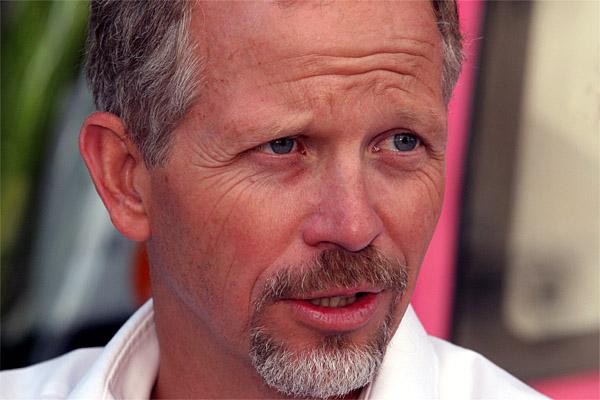Columbia's Stapleton "unenthusiastic" about radio ban
But ok with trade team time trial addition to worlds

Columbia-HTC team chief Bob Stapleton has joined what appears to be a growing chorus of opposition to the Union Cycliste Internationale's (UCI) announcement that it will gradually phase out the use of intercom radios in races.
On Wednesday, the UCI's Management Committee voted that the two-way radios currently used by riders and teams to exchange tactical and safety information should disappear from professional racing. The UCI plans to announce its timetable for implementing the ban in the coming weeks or months.
Speaking at the World Championships in Mendrisio on Saturday, Columbia-HTC team boss Bob Stapleton said that he was "unenthusiastic" about the proposal.
"I think the basic premise is wrong. It's dangerous," Stapleton argued. "There are too many cars and vehicles in races right now for it to be safe. I don't think these riders are robots. It's disrespectful to suggest that all they're doing is following suggestions from the car. Some of the guys are very good tactically. I actually think the radios enhance the racing. If you want to do more, there's a lot to do before taking the radios out."
Stapleton, formerly a highly successful businessman in the field of telecommunications, said that the UCI would be better served using the two-way radios to the sport's advantage. He suggested allowing television broadcasters access to live recordings of messages between riders and their team cars. "Make it part of the entertainment," he said. "Cycling's biggest problem as a televisual sport is that there are too many hours where nothing is happening. Make radios part of the show."
Pressure on the UCI to clamp down on radio use has apparently come mainly from France. The French Cycling Federation banned radios at this year's French national championships. Tour de France organisers ASO then braved the scepticism of a majority of teams and riders by scheduling two radio-free stages at this year's Tour de France.
After what was clearly an organized "go-slow" in the first of those stages, the second was abandoned, much to the frustration of Tour director Christian Prudhomme.
Get The Leadout Newsletter
The latest race content, interviews, features, reviews and expert buying guides, direct to your inbox!
Stapleton believes that the campaign to scrap radios is fuelled more by propaganda than hard evidence that it benefits racing.
"I think this thing got a tailwind from the French national championships or something," he said on Saturday. "I think it might have even started with French television saying that they wanted to take radios away for some reason. They had it in the French nationals, then it was self-reported as a big success. But I don't think the lack of radios shaped the Under 23 race today, for example.
"I just think that you can do it on a closed circuit like this, but it's a lot different on open roads at the Tour de France," he said. "I really fear for the riders' safety in this. The experiment with the radio ban at the Tour ended badly because the riders were afraid for their own safety. This whole thing could backfire."
The UCI can draw some comfort from the fact that Stapleton seems keener on their move to introduce a team time trial to the Worlds in 2012. That race would be contested by trade and not national teams like all of the other World Championship events.
"I'm a little more enthusiastic about the team time trial idea," he said. "I haven't thought a lot about it, but our team loves that stuff. Garmin also loves that stuff. I think it's OK. It's another dimension."
Follow Cyclingnews on Twitter for the very latest coverage of events taking place in the cycling world - twitter.com/cyclingnewsfeed.